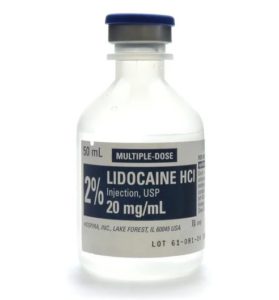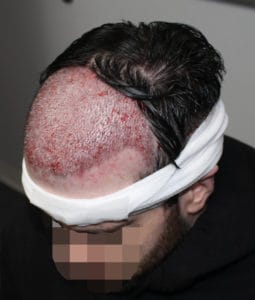Can I Drive Myself to and from my Hair Transplant?
A very common, and good, question we are asked during consultations is whether or not patients can drive themselves to and from their hair transplant surgical appointment. What patients really want to know is if they will be safe to drive after surgery. While it may seem somewhat insignificant when considering have a surgical procedure, the ability to drive yourself to and from surgery is actually very important. Some patients live alone, while others are trying to keep the procedure a secret. The need for someone to help them with driving may be a “deal breaker” when it comes to having the hair transplant many eagerly want to get.
So, can you drive yourself to a from hair transplant surgery?
The short answer is: yes, you absolutely can drive yourself to and from your hair transplant appointment. In fact, approximately 50% of our patients drive themselves.
A hair transplant is done under local anesthesia or simple “numbing medication” — the same stuff the dentist uses

Lidocaine or “numbing medication” used during a hair transplant surgery.
to “numb” you for a cavity. This medication does an excellent job ensuring patients feel nothing during their surgery, and it also does one other very important thing: it does not alter your level of consciousness or “knock you out.” Unlike general anesthesia where you are “put to sleep” under the care of an anesthesiologist and require breathing support and plenty of recovery time after surgery, you are completely awake and conscious with local anesthesia. You are not affected in any way aside from being, thankfully, numb where the medication is placed. This means there is no period before or after surgery where you may be groggy, confused, or altered and should not drive.
However, numbing anesthesia may not be the only medication given to patients the day of surgery. Often times patients are understandably anxious in the morning, and may be provided with the option to take an “anoxylitic” or anti-anxiety medication. Most of the time these medications are from the benzodiazepine family of medications and are better known by brand names like “Xanax” or “Valium.” Many times, doctors recommend that patients not drive after taking a benzodiazepine medication. This is true. We would not recommend that a patient take an anti-anxiety medication and immediately drive home. However, these medications typically leave the system pretty quickly and we give them early in the morning. A patient may take a very low dose Valium, for example, at 8AM and finish surgery closer to 4PM. At that point, the medication has cleared the system and you should no longer have any effects like tiredness or trouble focusing. Your doctor will speak with you at the end of the day to make sure you feel well and the medication has cleared, and you should let him or her know if you feel “off” at all and are not comfortable driving. In this instance, the doctor will likely recommend not driving and call a cab or an Uber. Patients are also provided pain medications for after surgery. While these are typically taken after you are home and settled, some patients do opt to take them right after the procedure. You cannot drive after you have taken pain medications. The pain medication stays in the system for much longer compared to the anxiety medication, and it is not recommended that you drive, at all, if you have taken pain medication at all during your procedure. Make sure you have someone to drive you back if you do plan on taking the pain medication right after surgery.
Patients should also keep a few other things in mind when considering driving themselves to and from surgery:
If you have a long way to drive after the procedure, you may want someone else to drive you home or you may want to stay locally so you only need to drive a short distance. The numbing medication will eventually wear off, and you may start to experience discomfort if you aren’t settled with some pain medication in your system by around 3 hours after surgery. If you have someone else driving the long distance, you can take a pain medication and rest in the car. If you have more than a few hours drive, however, you may want to rethink driving yourself — and remember you cannot take any pain medication while driving!

Patient immediately after hair transplant surgery.
Another thing to consider is how easily you, as an individual, become tired or fatigued. Believe it or not, patients are typically very tired after hair transplant surgery; especially after large surgeries that last upwards of 6+ hours. Some people have a higher tolerance for general fatigue and don’t have a problem driving for a little bit while still feeling tired. If you are the type of person who has trouble focusing or really does not function well after strenuous events, you should be honest with yourself and consider asking someone else to accompany you to surgery and drive you home. The last thing you want to do is become too tired driving home and risk anyone’s safety.
So, can you drive yourself to and from a hair transplant procedure? Absolutely. Should you? That is a slightly more complicated question. Patients preparing for surgery should honestly assess how much driving needs to be done and how willing and comfortable they are to actually drive, and then determine whether or not they want a chaperone. Most friends and family members are very understanding and discrete. I have yet to see a sibling, parent, or good friend who wouldn’t tag along and help out with the driving. If you think you would be more comfortable having someone drive you to and from your hair transplant surgery NY, don’t hesitate to ask.
________
Feller & Bloxham Medical, PC





